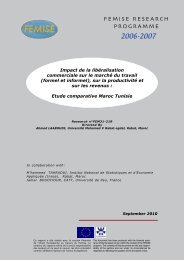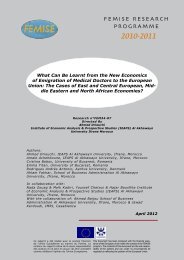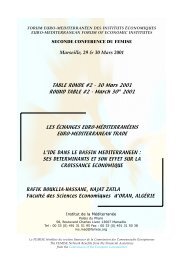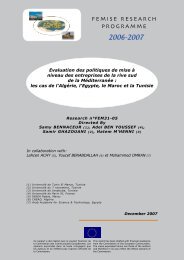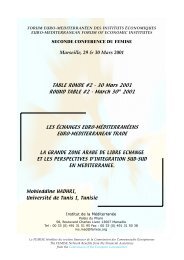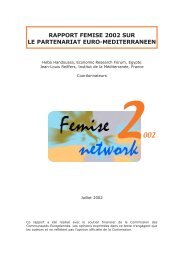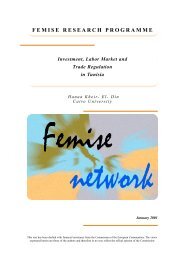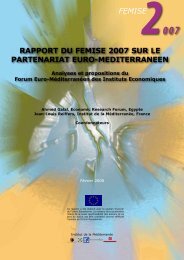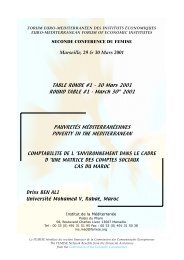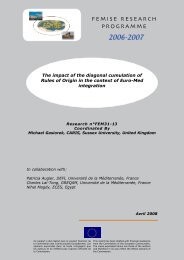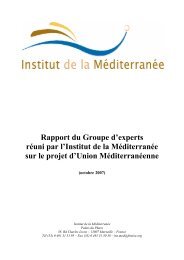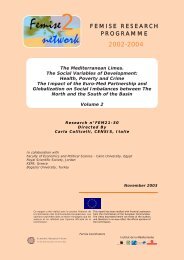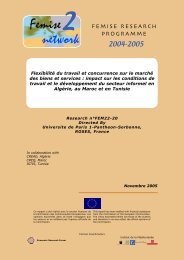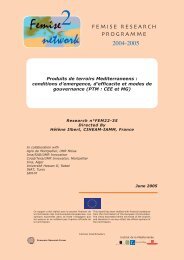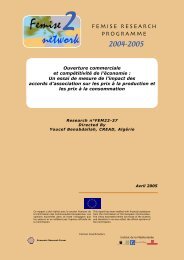PDF, GB, 139 p., 796 Ko - Femise
PDF, GB, 139 p., 796 Ko - Femise
PDF, GB, 139 p., 796 Ko - Femise
You also want an ePaper? Increase the reach of your titles
YUMPU automatically turns print PDFs into web optimized ePapers that Google loves.
themselves. In such cases, even though the government aims to realize public wants,<br />
regulatory policies can be implemented in wasteful and incompetent ways, which<br />
results in the over-regulation of the businesses. Seeing this, lower-level officials may<br />
take advantage of this situation and may seek to delay bureaucratic decisions in order to<br />
extract bribes. Thus, they can use their public power to extract bribes from those who<br />
need the authorizations or permits. As a result, an excessive number of regulations may<br />
result in widespread corruption.<br />
There is a growing statistical evidence that corruption slows down economic growth<br />
and foreign direct investment. Corruption in candidate countries had been one of the<br />
EU’s major concerns time after time, when the European Commission begun publishing<br />
its annual progress reports on candidates in 1997. The grounds of that anxiety were<br />
simple: - the European legal system works under the assumption that law will be<br />
implemented, controlled, and enforced by the public administration and judiciary of the<br />
member states. Corruption endangers the implementation and execution of rules or<br />
makes their adoption merely formal. An implication of the Accession Partnerships is<br />
that that the candidate countries must fight against corruption. Moreover, the EU-<br />
Commission has adopted a requirement of an anti-corruption framework for all<br />
candidates. What is more important, the EU was a major force behind de-regulation in<br />
the NMS. Therefore, the EU accession process has had a major impact on corruption in<br />
candidate states. This can be confirmed by comparing corruption scores of non-EU post<br />
communist countries and New Member States. In our opinion, the recent accession to<br />
the EU required from the NMS to put in place measures that enforce transparency and<br />
competition.<br />
In MPCs, there has been a tendency for reforms and economic liberalization programs<br />
to lag. This underdevelopment of bureaucratic powers and regulation has created<br />
opportunities for rent seeking associated with corruption. The MPCs had no such<br />
external pressure as the NMS had, applied on them by the European Commission.<br />
Hence, the position of interest groups within the MPC still allows rent-seeking<br />
behaviour through artificial barriers to entry to internal markets and discourage<br />
competition.<br />
17



